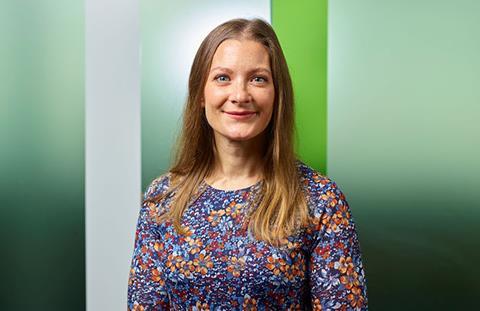
There is no denying it. It is almost 2024. Families of all shapes and sizes are preparing for a joyful festive season with their loved ones.
But as I look at all the wonderful families around me, families whose ideas of what 'family' means left the 1950s behind long ago, part of me worries that they may not appreciate that their pension scheme’s definition of 'family' might be much more traditional.
Why are schemes often more traditional? To be fair to pension schemes, it is not because they are a Scrooge. It is simply because many schemes were set up in the 50s, 60s and 70s and the benefit structure, including the benefits payable on the death of a member, reflected the general views and expectations of the time.
This means that many scheme’s death benefits were originally designed based on the assumption that: you were male; you got married while you were still working for the scheme’s sponsoring employer; you stayed married for life; your spouse was financially dependent on you; you had biological children at a relatively young age and within your marriage, and your children are cared for by your spouse and leave home and become independent at around age 18.
But things have moved on. Thankfully there have been legislative changes which have required schemes to update some of their death benefit rules. Not least to provide for same sex spouses and civil partners, although the drive for full equality is a complex story for another day. But, in many respects, who can qualify for death benefits is still largely determined by each scheme's design.
Many schemes have also chosen to make other updates over the years to gradually give more flexibility, even if benefits still are not payable automatically or 'as of right' but rather subject to trustee discretion. For example, they may now include an option to pay a pension to an unmarried dependent or a financially inter-dependant partner and to any children who were financially dependent on the member up until age 23 provided they remain in education or training. However, these changes were often made in an ad-hoc way. They may also only have applied to members who were still building up benefits at the point the change was made. If a member already left pensionable service, they may still be subject to the original rules.
This means some schemes' rules are still surprisingly restrictive and old fashioned for at least some members. It is, therefore, not safe to make sweeping assumptions about who could be eligible for death benefits.
In most schemes, updating the death benefits would need a rule change which requires both employer and trustee consent. This means trustees cannot just modernise the rules on their own, however much they might want to.
There are also lots of reasons why employers may not have been keen to explore making changes above and beyond those that were strictly required; there were enough of those to navigate. These could range from a lack of time and resources, to a worry that the changes may increase funding requirements; if they could ultimately result in more benefits being paid out of the scheme.
But even if it is not difficult for those of us in the industry to understand why scheme rules still look the way they do, it is also not difficult to see why there might be a disconnect between what some scheme rules provide and what members might now assume or expect.
For me at least, this disconnect is starting to feel increasingly uncomfortable.
Could it be time for trustees to take a hard look at the death benefit provisions in their rules and ask themselves: if they are old-fashioned in some areas, or for some members, do we have discretion to operate them in a more modern way?
If we do not, could we ask the employer to consider making some changes, even if it is just to introduce a bit more discretion?
If we are ultimately stuck with particularly restrictive rules, are our member communications sufficiently clear that our members would be able to work out whether their loved ones might qualify for benefits, so that they can plan accordingly?
2024 sounds so futuristic, and I will probably still be dating things 2023 well into the spring. But before we get there, I would like to take this opportunity to say good wishes and good will for the New Year from the Sackers family to you and to all your family. However, you choose to define it.
Naomi Brown is senior counsel at Sackers
















